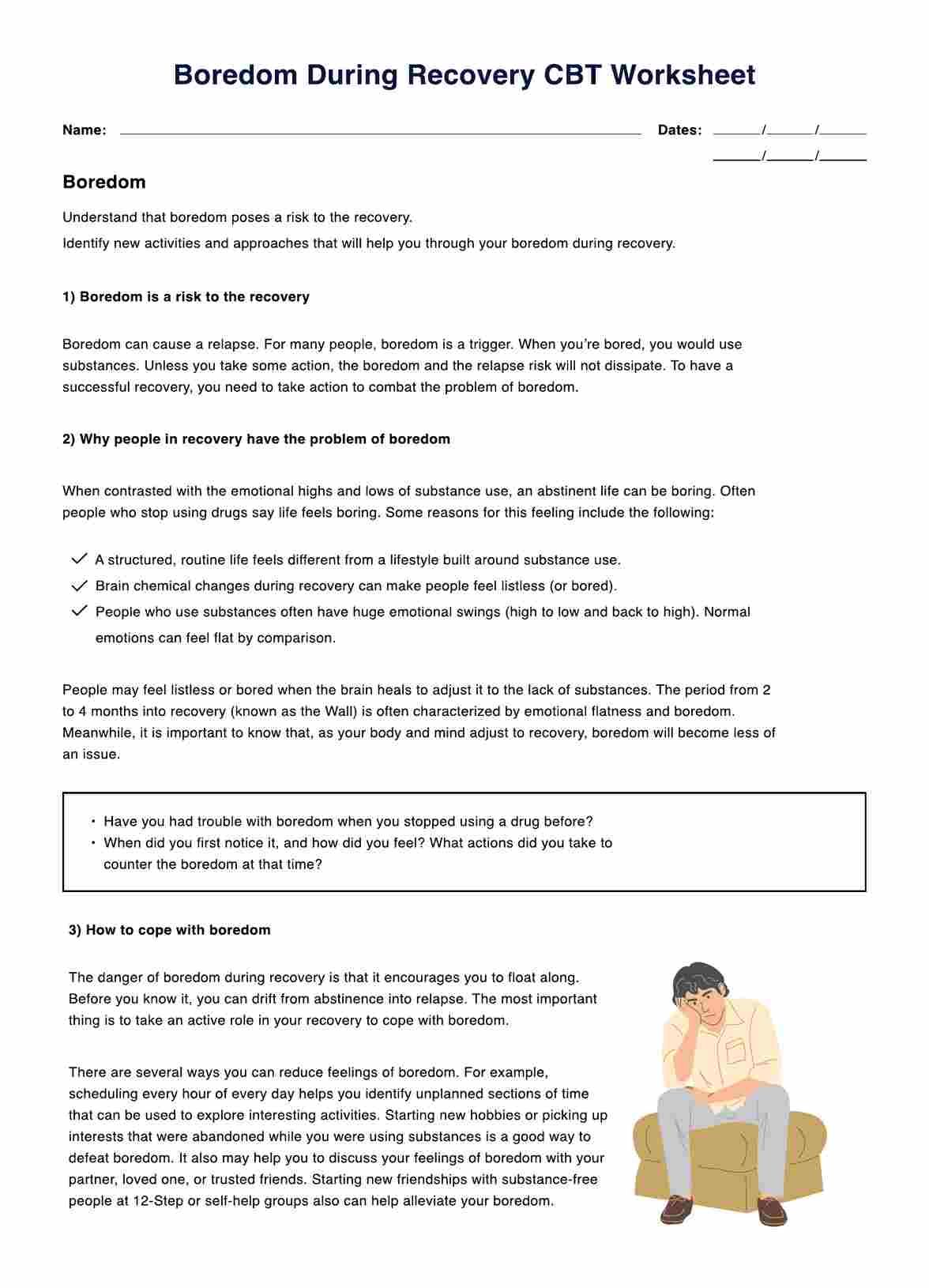Absolutely! Carepatron allows healthcare professionals to tailor the worksheet to individual patient needs, ensuring a personalized therapeutic experience.

Boredom During Recovery CBT Worksheet
Dive into our complete Boredom During Recovery CBT Worksheet guide. Discover its value, uses, & how Carepatron revolutionizes therapeutic interventions.
Use Template
Boredom During Recovery CBT Worksheet Template
Commonly asked questions
Definitely, Carepatron prioritizes user data security with top-notch encryption standards, ensuring that all your information remains confidential and protected.
The digital version of Carepatron offers real-time feedback, seamless administration, and easy storage. It's environmentally friendly and more efficient than traditional paper methods.
EHR and practice management software
Get started for free
*No credit card required
Free
$0/usd
Unlimited clients
Telehealth
1GB of storage
Client portal text
Automated billing and online payments











